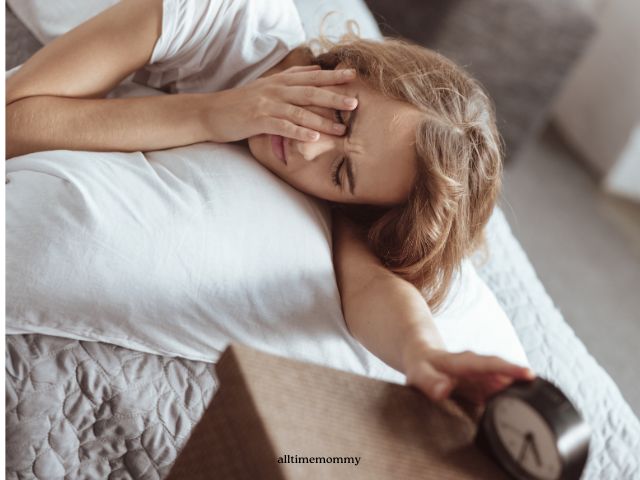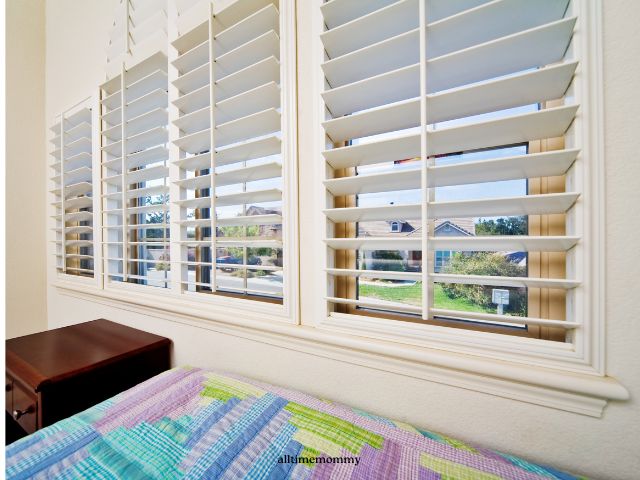Do you wake up feeling more tired than when you went to bed?
It’s a familiar feeling for many people.
You’ve slept for hours, yet when the alarm goes off, you feel like you’ve been hit by a truck. Your body aches, your mind is foggy, and the thought of facing the day feels almost impossible.
You might chalk it up to a busy lifestyle or a late-night scroll through your phone, but what if the true culprit is closer to home?
The space you retreat to every night—your bedroom—could be draining your energy more than you realize.
How?
Don’t worry. It’s not all doom and gloom.
By addressing a few key elements in your bedroom, you can have a space that promotes restful sleep and leaves you feeling revitalized every morning.
In this blog, we’ll explore how some common factors in your bedroom may be quietly draining your energy and what you can do to turn your bedroom into a true haven:
Is Your Bedroom The Hidden Reason You Always Wake Up Tired?
1. Technology and Electronics
The hidden energy drain from gadgets and devices in your bedroom is real.
I mean,
If your bedroom is cluttered with gadgets and electronics, it’s not just your space being affected—it’s your energy levels, too.
Charging devices like phones or keeping electronics close by can interfere with your sleep and drain your energy.
studies suggest that electronics emit electromagnetic fields (EMFs) and blue light.
These subtle disruptions may not seem significant, but they can negatively affect your sleep quality, increase stress, and even cause you to wake up feeling more tired than refreshed.
Instead of your bedroom being a place of relaxation, it becomes a space of constant stimulation, making it harder for your body to unwind fully.
To minimize these effects, try charging your devices outside the bedroom or at least away from your bed.
Keep electronics off during sleep hours and reduce screen time at least an hour before bed.
Creating a more peaceful, tech-free environment helps your mind unwind, and your body reset, recharge, and energize.
2. Air Quality
Do you know poor ventilation or allergens in your bedroom can leave you feeling sluggish?
Well,
The air you breathe in your bedroom has a powerful effect on how well you sleep and how energized you feel the next day.
Poor air quality, often caused by dust, or inadequate ventilation, can leave you feeling sluggish.
Oftentimes you ‘ll wake up fatigued, or even experience triggered allergies that disrupt your rest.
A stuffy room with low oxygen levels makes it harder for your body to relax and regenerate overnight, draining your energy and leaving you tired when you wake up.
To improve air quality, consider using an air purifier to remove dust and allergens.
Also, ensure you have proper fresh air circulation.
Adding houseplants, like peace lilies can also help improve oxygen levels and add a calming touch.
Creating a cleaner, fresher air environment will promote better sleep, allowing your body to rejuvenate and feel more energetic throughout the day.
3. Lighting
According to studies, the impact of improper lighting on your sleep quality and mood is quite severe.
Lighting plays a significant role in how restful your sleep.
Bright, harsh lights just before bed can interfere with the quality of sleep.
How?
Because it affects the natural circadian rhythm, making it harder for your body to wind down.
Exposure to artificial light, especially blue light from screens, can interfere with melatonin production, keeping your mind alert and preventing deep, restorative sleep.
As a result, you wake up feeling exhausted, even after a full night’s sleep.
To optimize your bedroom lighting, switch to softer, warm-toned lights in the evening and avoid bright overhead lights.
Use dimmable lamps. also install nightlights for a more soothing atmosphere. If you must use screens, enable blue light filters. This will help create a calm, relaxing lighting environment signals to your body that it’s time to wind down.
4. The Right Mattress and Bedding
According to Dr. Mary Mwanzoya, a sleep therapist, the comfort of your bedding plays a crucial role in how well you sleep.
An uncomfortable bedding can leave you feeling drained and unrested.
If your mattress is too firm, too soft, or simply worn out, it can cause aches and pains that disrupt your sleep cycle, leading to restless nights.
Similarly, low-quality or unsuitable bedding can leave you too hot or cold, making it difficult to settle into a deep, rejuvenating sleep.
When your sleep is compromised, your energy levels suffer the next day.
To improve your sleep and energy, invest in a mattress that suits your body type and sleep preferences. This will provide the support you need.
Choose breathable, high-quality bedding. Breathable bedding is recommended for body temperature regulation.
Remember to regularly refresh your sheets and pillows for a clean, cozy sleeping environment. A good sleeping environment invites relaxation and promotes better sleep, helping you feel truly rested and energized.
5. Bedroom Color and Decor
According to Dr. Phibi, your room’s aesthetic can either soothe or overwhelm your senses.
The colors and decor in your bedroom might seem like simple aesthetic choices, but they can have a powerful impact on your mood and energy levels.
Bright, bold colors or cluttered, chaotic decor can overstimulate your senses, making it harder for you to relax and recharge.
On the other hand, darker, heavy colors can make your room feel oppressive.
The room may look disorganized, creating mental clutter.
To create an energy-boosting environment, opt for calming, neutral colors like soft blues, greens, or warm earth tones, which promote relaxation and restfulness. Keep your decor minimal and organized to create a serene atmosphere that reduces stress. Adding simple, calming elements like natural wood accents, or plants can also bring your space a peaceful, rejuvenating vibe.
6. Clutter and Disorganization
A messy bedroom might seem like a minor inconvenience, but the clutter and disorganization in your space can actually be draining your energy without you even realizing it.
When your room is filled with piles of clothes, scattered belongings, and disorganized furniture, it creates visual chaos that can overwhelm your mind.
This constant visual stimulation makes it harder for your brain to relax, increasing stress and anxiety, and preventing you from fully unwinding for restful sleep.
To reclaim your energy, try adopting a minimalist approach by decluttering regularly and keeping only what you truly need or love in your bedroom.
Organize your space by designating specific spots for items and keeping surfaces clear.
A tidy, simplified room will create a calming environment, reduce mental stress, and help you feel more energized and focused during the day.
By turning your bedroom into an organized sanctuary, you’ll boost your energy levels and improve your overall well-being.




